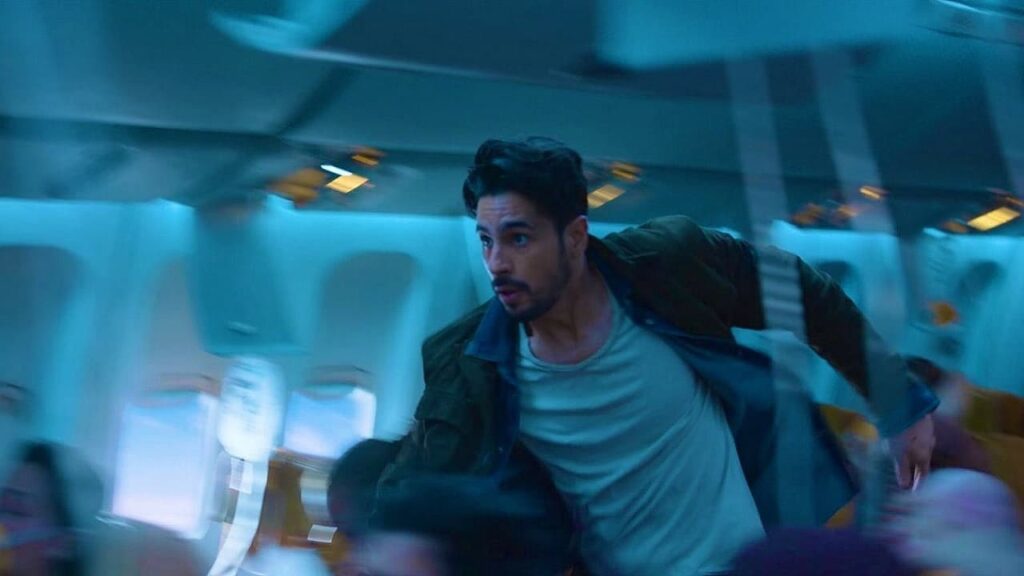After Shershaah (2021), Sidharth Malhotra seems to have found his niche – playing heroic figures in the Indian Army (real or fictional) who can be entrusted to win the day through their fists and physicality alone. In that sense, Yodha seems tailor-made for Malhotra’s strengths while also serving as a great homage to director-duo Abbas-Mastan’s camp-drenched filmography.
Directed by a duo of first-time directors, Sagar Ambre and Pushkar Ojha, with a script by Sagar Ambre, Yodha follows the journey of Arun Katyal (Sidharth Malhotra), an Indian Army soldier and a member of the Yodha Special Task Force that had been inaugurated by his father (Ronit Roy). A devastating failure leads to the disbanding of the task force and leaves Katyal’s life in shambles. He must now pick up the pieces and become the hero again (even though his lone-wolf strategy is alluded to heavily in the film as the reason for his failure).
Unlike the self-seriousness of Siddharth Anand’s Fighter (2024), Yodha feels content enough to revel in the silliness and campiness of its plot, logical loopholes be damned. Co-directors Ambre and Ojha have previously worked as assistant directors on Siddharth Anand’s films, and like their mentor, the overall presentation of the story and screenplay bears a significant resemblance to popular Hollywood action flicks. The majority of the film’s plot seems to be heavily inspired by the Liam Neeson starrer, Non-Stop (2014), directed by Jaume Collet. Like Non-Stop, which follows a down-on-his-luck Air Commando who has to stop a plane hijack and the underlying larger conspiracy behind it, here Katyal will also have to stop a flight from being hijacked amid the larger conspiracy to weaken peace talks between India and Pakistan.
Action film fans have a low ceiling in terms of the enjoyment of a film. Thankfully for us, Ambre and Ojha’s strength clearly lies in the depiction of action sequences. In the opening sequence – in which Arun Katyal essentially takes matters into his own hands and breaks into the terrorist organization’s base – the director duo uses an apparent long-take sequence following Katyal as he mows down a room full of bad guys with moves reminiscent of gun-kata skills in John Wick (2014). These directorial touches are a clear demonstration of the expertise that goes hand-in-hand with a love for the genre. Besides, Malhotra anchors these action sequences quite effectively, bringing a genuine physicality and presence to his part that makes him pretty convincing as an action hero.
While Malhotra stuns as a capable action star, he is not as effective in moments where he has to express vulnerability, mental anguish, or frustration. In fact, one of the bigger criticisms that could be laid at the foot of the film is its execution of emotional moments. Arun’s father is cited as his major motivator for becoming an army officer, as is Arun’s passion for fighting the system to keep the task force from disbanding. But Ronit Roy has only a cameo appearance, and his presence is even less felt. On the other hand, the relationship between Arun and his wife, Priya (Raashi Khanna), is depicted via a song sequence, Bollywood’s shorthand for portraying emotional depth. Borrowing dialogues from Shahrukh Khan-starrer films from the 1990s as a love language, Yodha intends to evoke, appeal and demonstrate a lived-in chemistry between the pair, yet their fandom of these films is never established in the narrative. Thus, when conflict inevitably arises between the couple, we aren’t rooting for them to get back together. Rather, we are interested in the plot progression.
Ambre’s screenplay cleverly uses two plane hijack sequences – one, as a backstory and another, as the plot’s true centerpiece – without making them feel like very evident plot devices. Even though the first half sets up the stakes, with supporting characters and plot threads that will collide in the climax, nothing prepares you for the twists in the narrative of the second half. Yes, there are quite a lot of logical fallacies but Yodha is paced extremely quickly to bypass them. As the twists come hard and fast, the film and the performances feel ingrained with so much ridiculousness that you, as a viewer, are bound to throw caution to the wind yourself.
As the movie shifts genres (from a plane hijack thriller to a hostage thriller at the end), it loses interest in the safety of the passengers or the thrill of landing the plane. It becomes too busy designing Arun Katyal as the lone saviour who will not only rescue the hostages but also restore the respect of his nation. That said, thankfully, the nationalism running within the narrative isn’t quite overwhelming or tending towards the kind of ear-deafening jingoism we get to seesee in many of our films today.
Yodha is not the movie one goes to watch expecting dramatic depth. It is a campy, twisty, trashy action thriller – a genre of films that Bollywood had seemingly forgotten how to make, but Yodha feels like the genre has somewhat regained that groove. There is a purity in the bonkers nature of the story, however much ‘inspired’ by other materials it might be, which squarely places this film in the guilty-pleasure of the so-corny-that-its-good category.
Action, Drama, Color


